3560
One life for two (15 photos)
Conjoined twins Trishna tops and Krishna were born in Bangladesh nearly three years ago. And Australian doctors managed to split Siamese twins. Operation to separate brain tissue girls, which lasted 25 hours, was performed by an experienced surgeon, and 16 completed successfully. Neurosurgeons were able to distinguish brain tissue girls only one day after the operation. Before the surgery, doctors assessed the chances that both sisters will take action without severe consequences for the brain, 25%, but now the girls are doing well. What would their life be different if the division did not take place?
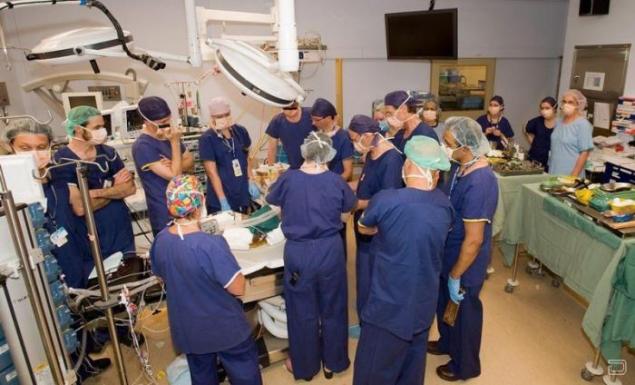
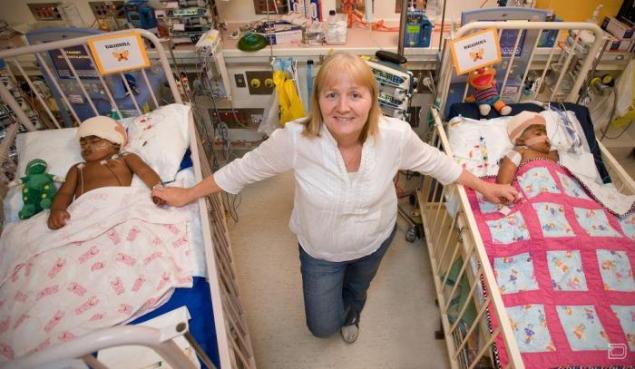
1) Australian doctors managed to separate conjoined twins. The operation, which lasted 25 hours, ended successfully.
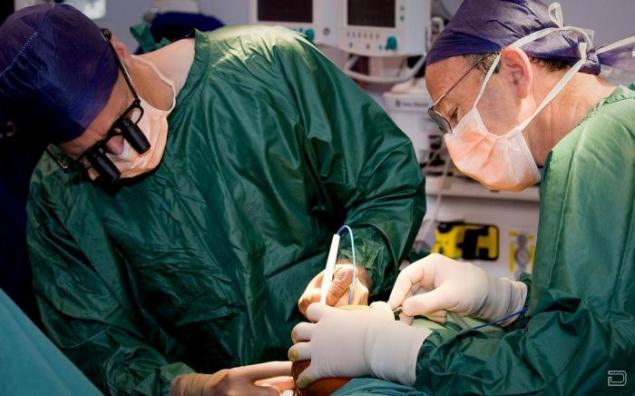
2) Doctors carried out an operation to separate Siamese twins. Conjoined twins Trishna tops and Krishna were born in Bangladesh nearly three years ago.
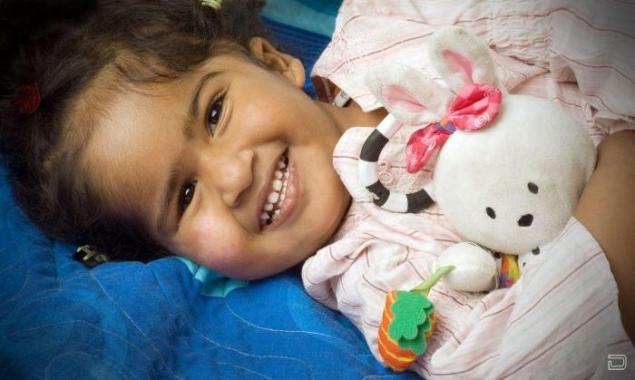
3) Trishna. The girl is now 3 years old. About two years ago, she along with her sister Krishna was brought to Australia to share them.
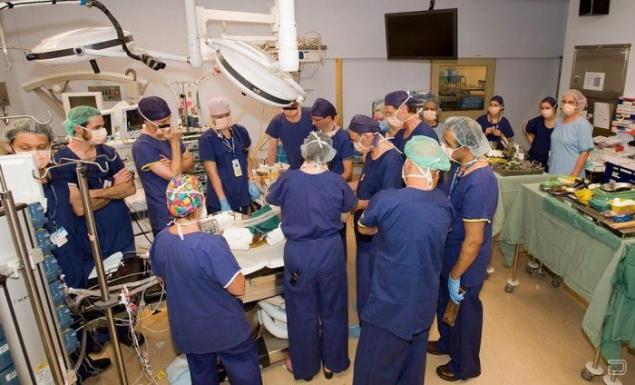
4) operation to separate brain tissue was performed 16 girls experienced surgeons. Neurosurgeons were able to distinguish brain tissue girls only one day after the operation. According to Donnan, a leading surgeon Royal Children's Hospital in Melbourne, at the time when it happened, everyone present felt "pretty surreal».
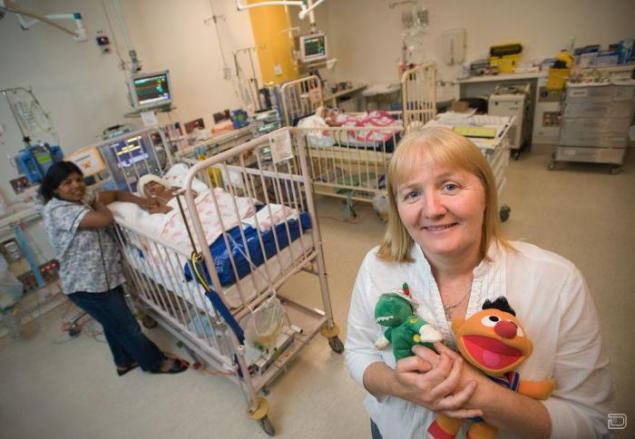
5) The guardian Moria Kelly cots near Trishna and Krishna after a successful operation.
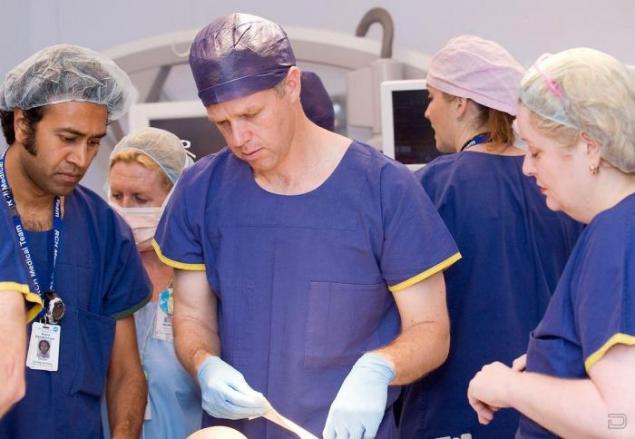
6) Before the surgery, doctors assessed the chances that both sisters will take action without severe consequences for the brain, 25%. Now the girls are doing well.
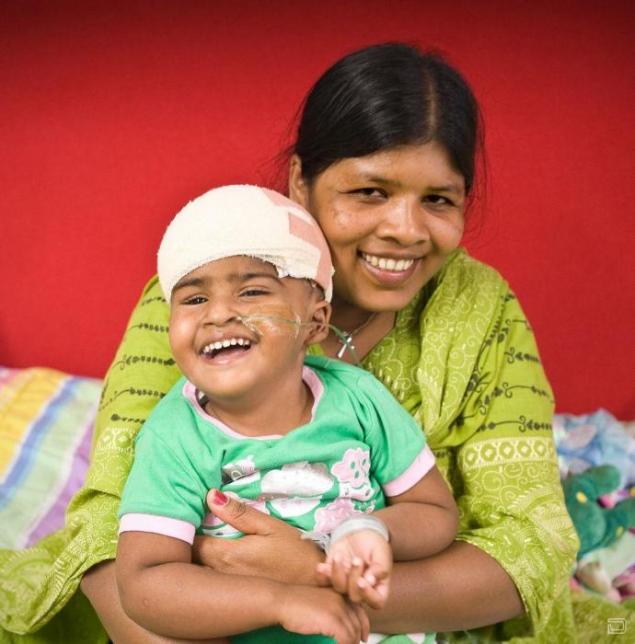
7) Volunteer Maria Mardi with Trishna after surgery. Girl is very sociable and cheerful.
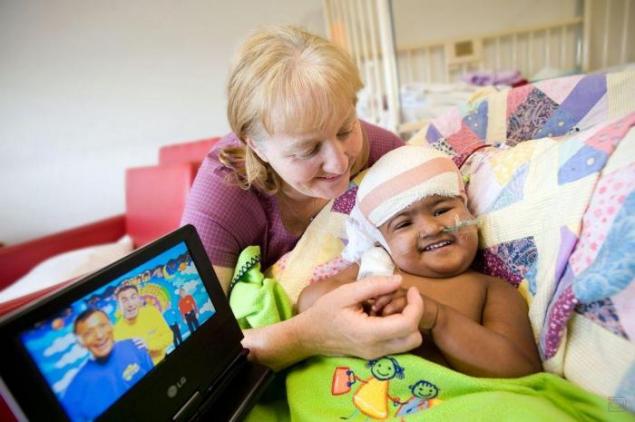
8) Krishna with his guardian. The head of the neurosurgery department Melbourne Hospital Royal Children's Hospital Virginia Meyksner said it expects full recovery Trishna and Krishna. Unique operation without separation of girls waiting to die.
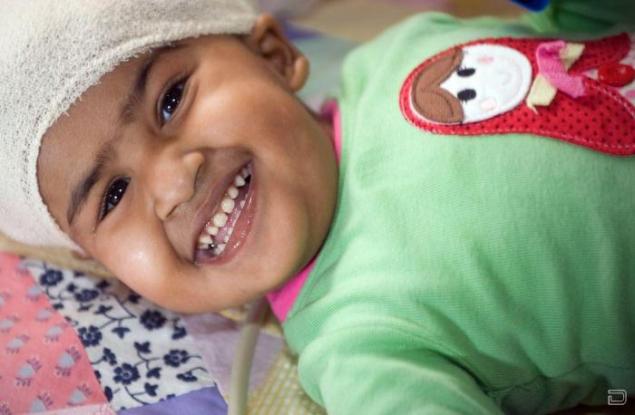
9) Krishna, one of the girls who had the surgery. About half of conjoined twins are born dead. The resulting survival rate of infants 5-25%.
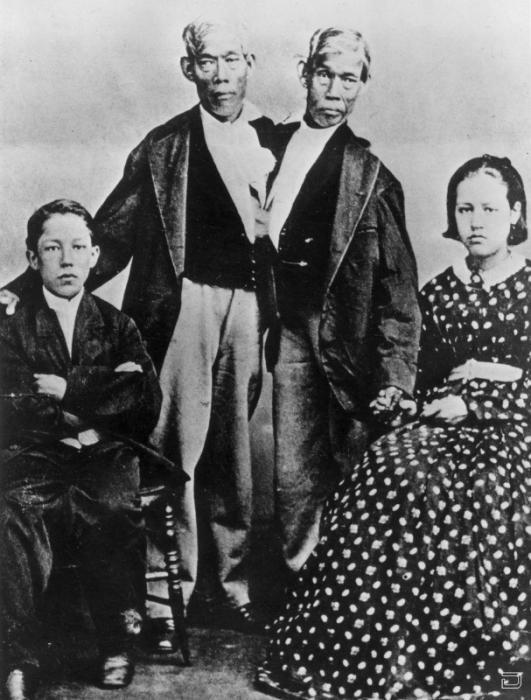
10) The first case, when the two boys, Chang and Eng Booker born in Maklonge (in present-day Thailand) in 1811 (when the country was known as Siam), and survived and spent their lives without being able to leave for a second one other. Even when Chang died of pneumonia, Ang did not agree to an operation that freed him. He died two hours later, at the age of 63 years.
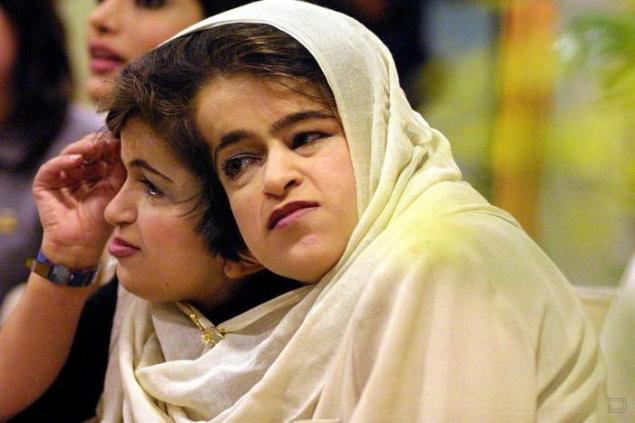
11) Many Siamese twins can not survive without surgery division. While some live long enough life. These sisters 29 years. The oldest conjoined twins celebrated this year's 58 th anniversary.
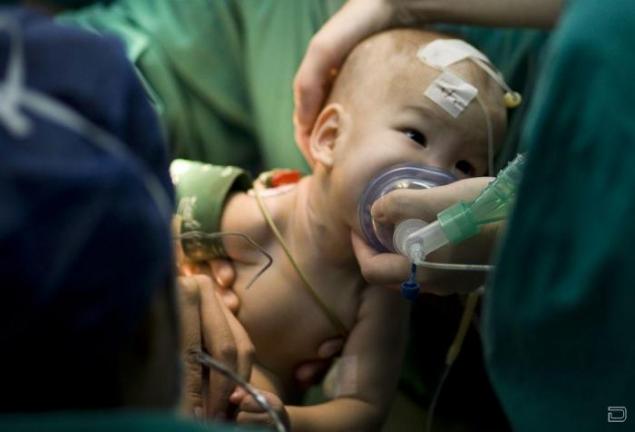
12) The child immediately after the operation, during which the team of surgeons successfully divided Siamese twins orphans. The probability of the birth of conjoined twins is approximately one case per 200 000 deliveries.
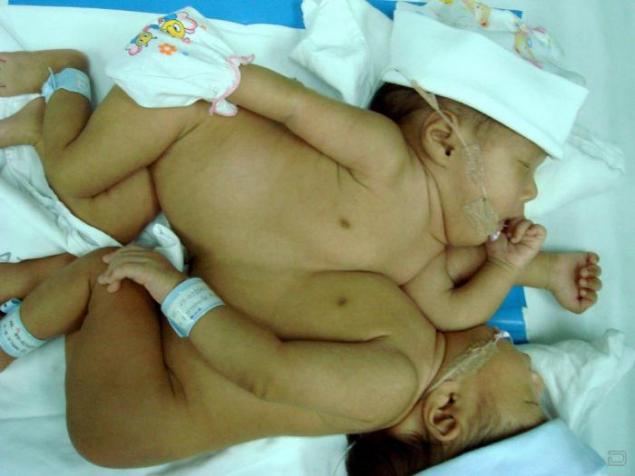
13) In Thailand, operated on conjoined twins. It was the world's first successful operation to separate Siamese twins who have the heart and organs were separate, yet children were connected.
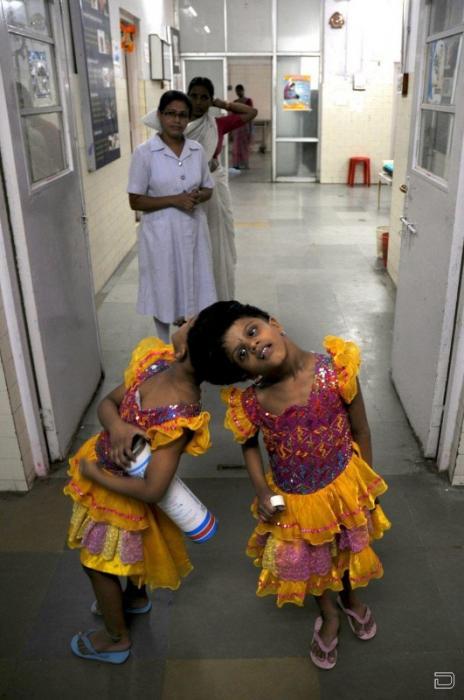
14) and Vani Sisters Veen. Doctors plan to operate them. Chance that both girls would survive, doctors estimate 60 to 70%.
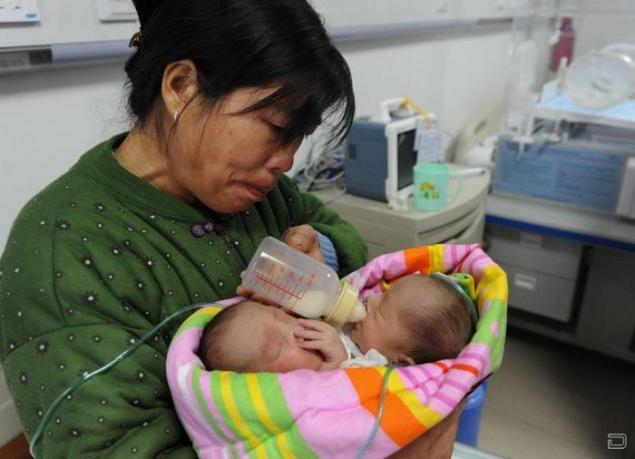
15) Mother feeding infants with one heart and one liver for two. During pregnancy, doctors have repeatedly assured the woman that her children will be born healthy.


1) Australian doctors managed to separate conjoined twins. The operation, which lasted 25 hours, ended successfully.

2) Doctors carried out an operation to separate Siamese twins. Conjoined twins Trishna tops and Krishna were born in Bangladesh nearly three years ago.

3) Trishna. The girl is now 3 years old. About two years ago, she along with her sister Krishna was brought to Australia to share them.

4) operation to separate brain tissue was performed 16 girls experienced surgeons. Neurosurgeons were able to distinguish brain tissue girls only one day after the operation. According to Donnan, a leading surgeon Royal Children's Hospital in Melbourne, at the time when it happened, everyone present felt "pretty surreal».

5) The guardian Moria Kelly cots near Trishna and Krishna after a successful operation.

6) Before the surgery, doctors assessed the chances that both sisters will take action without severe consequences for the brain, 25%. Now the girls are doing well.

7) Volunteer Maria Mardi with Trishna after surgery. Girl is very sociable and cheerful.

8) Krishna with his guardian. The head of the neurosurgery department Melbourne Hospital Royal Children's Hospital Virginia Meyksner said it expects full recovery Trishna and Krishna. Unique operation without separation of girls waiting to die.

9) Krishna, one of the girls who had the surgery. About half of conjoined twins are born dead. The resulting survival rate of infants 5-25%.

10) The first case, when the two boys, Chang and Eng Booker born in Maklonge (in present-day Thailand) in 1811 (when the country was known as Siam), and survived and spent their lives without being able to leave for a second one other. Even when Chang died of pneumonia, Ang did not agree to an operation that freed him. He died two hours later, at the age of 63 years.

11) Many Siamese twins can not survive without surgery division. While some live long enough life. These sisters 29 years. The oldest conjoined twins celebrated this year's 58 th anniversary.

12) The child immediately after the operation, during which the team of surgeons successfully divided Siamese twins orphans. The probability of the birth of conjoined twins is approximately one case per 200 000 deliveries.

13) In Thailand, operated on conjoined twins. It was the world's first successful operation to separate Siamese twins who have the heart and organs were separate, yet children were connected.

14) and Vani Sisters Veen. Doctors plan to operate them. Chance that both girls would survive, doctors estimate 60 to 70%.

15) Mother feeding infants with one heart and one liver for two. During pregnancy, doctors have repeatedly assured the woman that her children will be born healthy.
























